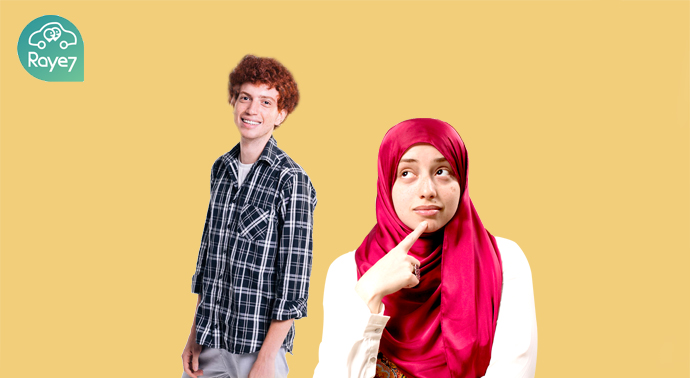By Sara El-Sayeh
Given the amount of people living in the city, the poor quality of public transportation networks and the scarcity of parking lots and spaces in general, Cairo is fertile ground for commuting solutions like Uber and its regional competitor Careem – both stating that Egypt is their fasting growing market in the region. However, local solutions have been developed, based on personal experiences of young Egyptians who wanted to make the best of their daily commute to work and university. Among these solutions is “Raye7” – a carpooling mobile application that was launched in 2014 by Samira and Ahmed Negm.
“Fiery” is what one would use to describe Ahmed Negm, co-founder of Raye7, always on the move, I got to sit and talk to him about why Raye7 came to existence and why the company has not experienced exponential growth as one would expect it to given Cairo’s traffic situation.
After his “no destination” hitchhiking experience traveling 2000 km around Japan, he never felt alone thanks to the people who offered him rides, he explained. He rode with families, lone travelers and people who, like him, were just “going” without knowing where to. His older sister, Samira, is a computer engineer and is also someone who led a very active lifestyle. Their family’s move to Obour City has left them both short on time and energy to do the things they have always done while living in the city centre. On average, Cairenes waste three to four hours of their day in traffic, and given how that personally affected the Negms’ lives, they decided to find a solution that would work for Egyptians.
And so, “Raye7” came to existence; a mobile application that relies on existing communities; university campuses, clusters, factories or big companies and offers its members the opportunity to carpool or “share rides.” Users are not able to use Raye7 unless they are a member of an authorized community, so that people would feel safe enough to use the service. A cashless service, where the driver gets to “collect” kilometers on the app, which they could either “cash out” once a month while the company collects a percentage or exchange for rides with other people. Initially, Raye7 wanted to sell the service to large companies and register them as communities, hence capitalizing on the number of employees at large companies. However, unless the top management was brought on board, companies were not as responsive as expected.
Negm explained that the value added the service offers its clients, both corporate and individual, is threefold. On a corporate level, carpooling saves companies money, he argues, “through enhancing the sense of community among employees, companies cut costs of team-building activities.” Looking at the environmental aspect of carpooling, companies would then be acting in more environmentally friendly ways through encouraging their employees to share rides.
From an individual point of view, people are happier riding to work with coworkers or fellow students who they would ultimately get to know better, brainstorm ideas with, build their network while saving money often spent on transportation.
Raye7 is planning on launching an “individual” payment system via credit card. “That does not change the fact that users need to be members of a verified cluster!” Negm explained, “but it could then help us sell the service to employers once we have enough of their employees on our platform.”
Samira and Ahmed, both under thirty, see payment platforms as their biggest obstacle since credit card penetration rates are not high enough among their target segment while companies like “Fawry” mainly deal with high volume clients.This, Ahmed explains, is something the entire start-up infrastructure suffers from; no easy way of collecting payments in Egypt.
Another obstacle is that of knowhow and talent availability; despite the large number of young people in Egypt, and a large number of computer science graduates, there is a scarcity in competent software programmers in the labour market. The app uses very specific and up-to-date programminglanguages and the few competent engineers would rather work for big multinationals – this often leads to startups paying salaries beyond their means to attract talents.
“Startup work is a lot harder than working for a typical company, you need to be good at multitasking and be willing to wear many hats” as cofounders, Ahmed and Samira often exchange roles as “things need to be done! It doesn’t matter who does the job as long as the work is done.”
What’s so special about Raye7?
Raye7 has won ten international awards, the most recent being the second best mobile startup in the world at the 4YFN event during the annual GSMA Mobile World Congress held in Barcelona, Spain, the first being an app called ‹Whatson planner.” Raye7 is currently incubated at the Technology, Innovation and Entrepreneurship Center (TIEC) located in Smart Village which is part of the Ministry of Communications and Information Technology. TIEC incubation is done through a competitive process annually; startups pitch their ideas and investors vote on which companies are to be incubated. After a filtering process, selected companies are offered a lot of support which includes free office space and access to facilities, financial support and business model innovation and mentorship support. TIEC has facilitated a meeting with the Minister of Communications and Information Technology, Engineer Yasser el Kady, during which the award won in Barcelona was discussed and the co-founders introduced their mission and vision and where the minister has offered his support.


